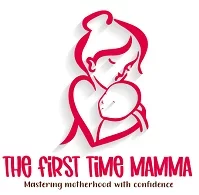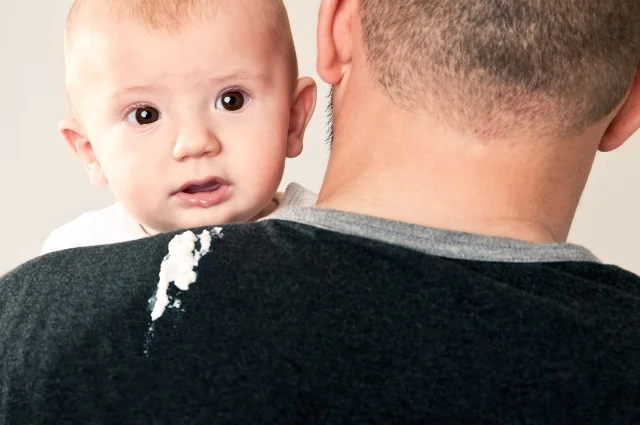Feeding is one of the activities your baby will engage in for a large part of their lives. Once you feed your baby, they become relaxed and soon fall asleep. Babies tend to take in a lot of gas with their meals which is why burping them is part of their feeding routine. What happens if you don’t burp a baby? Your baby may become bloated and very uncomfortable, which isn’t good for their health.
Hey! By the way… any links on this page that lead to products on Amazon are affiliate links and I earn a commission if you make a purchase. Thanks in advance – I really appreciate it! .
Another symptom of what happens if you don’t burp a baby is that they’ll become fussy and cranky. It’ll seem like they’re having a bad day. There’s no way your baby will be cheerful when all isn’t well inside. The fussiness is their way of letting out the discomfort they feel in their tummies.
If you don’t burp your baby, they are likely to spit up their food. In a bid to let out itself, the trapped gas might take food alongside, leading to outright vomiting, which leaves you with messy cleanups.
What happens if you don’t burp a baby? Your baby will not sleep well when you don’t burp them after meals. Most babies sleep immediately after having their fill. The discomfort caused by gas inside their stomachs will deprive them of relaxing, napping, and getting a good night’s sleep.
The lack of sleep caused by your baby not burping also affects your having adequate rest, especially at night. That is bad for your health and will affect your effectiveness in caring for your newborn.
Signs baby needs to burp
It’s almost intuitive for moms to burp their babies as they would have spent months preparing for the best ways to ensure they’re comfortable after meals. If you forget to burp your baby, there are signs that’ll let you know you need to do so.
Discomfort: Discomfort is the main sign that your baby needs to burb. If the baby isn’t relaxed and feeling content after eating, you should get them to burp.
Sleeplessness: Another sign you need to burp your baby is when they refuse to sleep after eating. If your baby stays awake rather than sleeping, you should get them relaxed by burping them.
Vomiting: If your baby’s throwing up after eating, you should burp them to let out excess gas in their tummies.
Crying: It’s strange for babies to start crying after eating. If your baby’s crying continuously after meals, help them to ease off by burping them.
Hiccups: If you notice your baby is hiccupping during and after breastfeeding or bottle-feeding, you should take it as a sign that you need to burp your little one.
Gastroesophageal Reflux (GER): If your baby suffers from gastroesophageal reflux, you should ensure to burp them during and after meals to help relieve their condition.
Is it ok to put a baby to sleep without burping?
Sleeping is the next activity for most babies after feeding. However, your baby will sleep better when nothing makes them uncomfortable. So, what happens if you don’t burp a baby before putting them to sleep? If there’s excess gas trapped in your baby’s belly, there’s every probability that their sleep won’t be a smooth ride. It’s, therefore, not ok to put your baby to sleep without burping them. You should gently pat your baby’s back while placing them on your shoulder or your knees to get the excess gas out of them. Afterward, you can lay them down to sleep.
Though some parents feel there’s no significant difference if you don’t burp your baby before they sleep, you should look out for any signs of discomfort and do all you can to eliminate the cause.
When to stop burping a baby?
You should stop burping your baby when you notice that it can let out excess gas on its own. That usually starts at about four months of age when they can sit upright. At this age, they’ll also begin eating without taking in too much air. It’ll be helpful if you offer to help them once in a while when they find it challenging to burp themselves. They will get better at it as the months go by. When they start eating more solid foods, they will completely outgrow burping difficulties.
Conclusion
This blog post has informed you about what happens if you don’t burp a baby. You should burp your baby during and after meals to help keep their food down in their bellies. Once you notice signs like hiccups, bloating, vomiting, and others, after feeding your baby, you should burp them and help them ease the discomfort of having excess gas within them.

